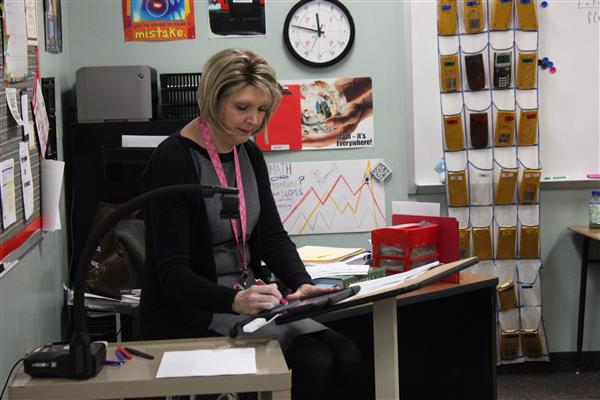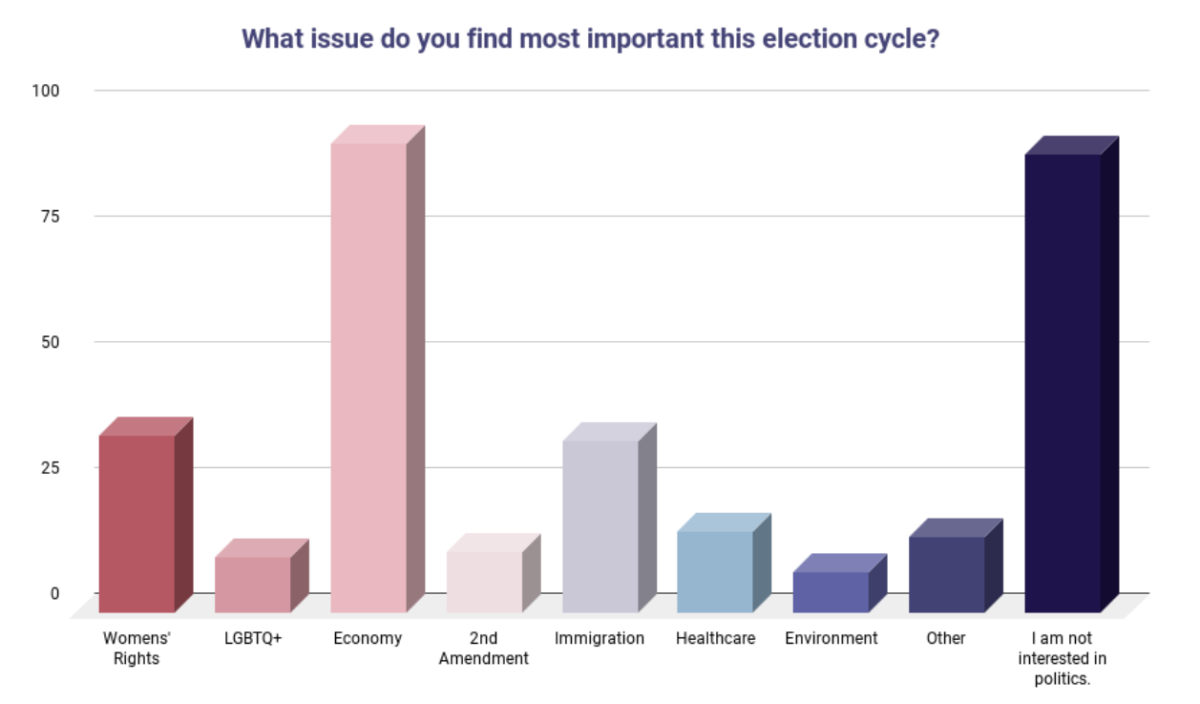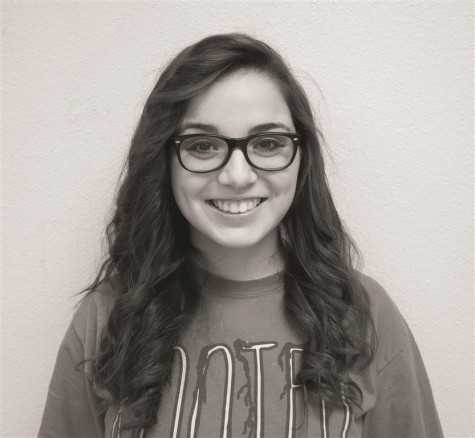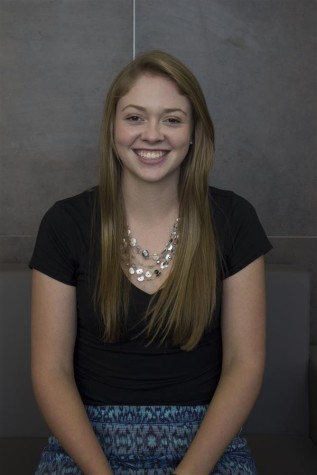Smiling at the doctor, Algebra II teacher Beth Shelton left the treatment room, got in her car and headed to school. Knowing this treatment had been lighter than most, she felt comfortable returning to teach her afternoon classes. Since her doctor had agreed with her decision, she attempted to continue her day as normally as possible. However, when she began teaching, it was clear something was wrong. Instead of receiving nods of recognition from her students, she watched them whisper quietly and compare notes.
“The doctor told me that I would be fine, but I seemed to be very scattered,” Shelton said. “I was okay with explaining, but then I would make mistakes.”
As she looked back over her work with a frown, she noticed a mistake she made in the problem on the board. Laughing, she shook her head and erased the work while apologizing to her students. Shelton had fallen prey to yet another episode of “chemo brain,” a side effect of her chemotherapy. It’s all part of her journey with breast cancer.
***
The goal of normalcy has been a common theme in her journey even from her initial diagnosis. Despite her recent biopsy in June, she didn’t allow the impending results to keep her tied down. Instead, she traveled to New Mexico’s highest mountain peak. She did what she loves – mountain climbing. Wheeler Peak was number 18 in her journey to climb the highest peak in every state. Working her way up to the summit at 13,159 feet was a difficult yet rewarding task, especially with the breast cancer diagnosis on her mind. Yet once she reached the top and was overlooking the desert surrounding her, it became an afterthought.
“Even though I knew I had the lump and I figured it was probably something that I was going to have to have surgery, I was so determined to get to the top of that peak,” Shelton said.
During the car ride back from Wheeler’s Peak, Shelton called the doctor and asked about the results. The biopsy revealed she had stage 2B breast cancer. It was a generally treatable form, but it had spread to her lymph nodes. It would require a lumpectomy, chemotherapy and radiation. A lumpectomy meant that the surgery would only remove the cancerous tumor and not any other tissue. However, chemotherapy has significant side effects like digestive stress and swelling of the hands and feet that can last for several days.
Days she couldn’t miss at school.
“The cost is really something you think about, and then the time,” Shelton said.
Many questions ran through her mind. Shelton was suddenly faced with the possibility of having to quit her job. Her first chemotherapy session was before teacher inservice started for the new school year. After discovering that her treatment had the potential to be manageable and worked into her teaching schedule, she knew she had to stay.
Continuing teaching while battling cancer may seem daunting to some, but not to Shelton. She said that while many would consider taking some time off to handle cancer in the comfort of their own homes, she prefers being in class with her students. Working is a distraction that helps her cope with her illness.
“When I’m at home I’m just thinking about myself and my condition,” Shelton said. “When I’m here I can do my job and I don’t have to dwell on my little symptoms.”
With the help of her fellow math teachers and her substitute, Bill Norton, Shelton has arranged to miss the least amount of days possible to be there for her students. Since she typically takes five days to recover from a treatment, she schedules them for Wednesdays and also misses Thursday and Friday. By Monday, she’s ready to come back and continue her lessons. When she can’t be there, the students use technology to receive specific help.
“I’ll be sitting in the chemo chair answering their questions,” Shelton said. “I’m available for the kids at all hours and I felt like I needed to do that because of the times that I wouldn’t be here.”
Through these exchanges, students are able to email questions to Shelton when she isn’t present in class. She uses apps like Notability to work out problems and send copies of work back to her students. While her plan has been relatively smooth, it has hit some bumps along the way. Two unplanned days were needed when her recovery period took longer than anticipated. However, she says she’s grateful for how everyone took initiative on her behalf.
“Everybody just handled it beautifully and I’m just very thankful,” Shelton said. “I’m very thankful to be around such support.”
Part of the support she’s received here at the school has come from her fellow Algebra II teacher Dorothy Houck. Houck said the two of them have become close friends over the past few years of working next door to each other.
“I knew she had a good support system,” Houck said. “I knew she was otherwise a healthy human being, and so I thought she had a really good chance to overcome this.”
Financial concerns, taxing treatments and traumatizing health issues can not only jeopardize health, but also marriages. However, her husband, Mark Shelton, has been a vital supporter. Shelton said her diagnosis has actually aided their marriage. Previously, both had been concerned with issues they now find rather trivial. Shelton has also found that her husband has stepped up without complaint to take care of tasks she can no longer complete, such as tending their yard, a favorite pastime.
“I couldn’t imagine going through this without him and unfortunately I knew people who were going through breast cancer that were also going through a divorce,” Shelton said.
While she has been met with a lot of support, Shelton has also faced disappointments in her journey. During one appointment, she received a prescription for a wig. That moment seemed to solidify the reality of her diagnosis. No longer was this hypothetical, it was really going to happen.
“Of course one of the first things that blew me away was when I was handed the prescription for a wig,” Shelton said. “I started crying because, I don’t know, it just hits you.”
Prior to her diagnosis, Shelton had one go-to treatment for bad days: food. Particularly chocolate. “Chemo taste” is yet another side effect of the chemotherapy. This alters the taste of food, often deterring Shelton from wanting to eat. However, she makes an effort to maintain a healthy diet, even when it’s not appetizing.
“I do try to cut out added sugar and desserts and fried foods and stuff like that,” Shelton said. “I try to eat even though food doesn’t taste good to me right now.”
Shelton understands that it’s not easy to remain positive. She knows that chemical imbalances in her body and other contributing factors sometimes cause her to feel depressed. While she understands that her prognosis is good, she does have one concern for her future.
“I guess if I had to say I had a fear it would be that [the cancer] would come back,” Shelton said. “I don’t let myself dwell on that.”
Chemo is a draining process, but Shelton aims to make it less so by intentionally seeking laughter. She enters the treatment room with a smile and makes sure she’s watching a funny movie while receiving the infusion. Even after her treatment, Shelton requires herself to make laughter a priority in her life.
“If I’m at home and I haven’t laughed in a while, I’ll get on YouTube and watch funny videos, things to make me laugh,” Shelton said. “I feel like an important part of my treatment for me is that I keep laughing and keep my sense of humor.”
Shelton’s last chemo treatment is Nov. 19. After that, she will focus on her radiation, which she understands won’t be quite as taxing.
“That’s when my hair starts to grow back, that’s when I lose the ‘chemo taste’ in my mouth,” Shelton said. “So I’m looking forward to after Thanksgiving when I’ll get Beth back.”












